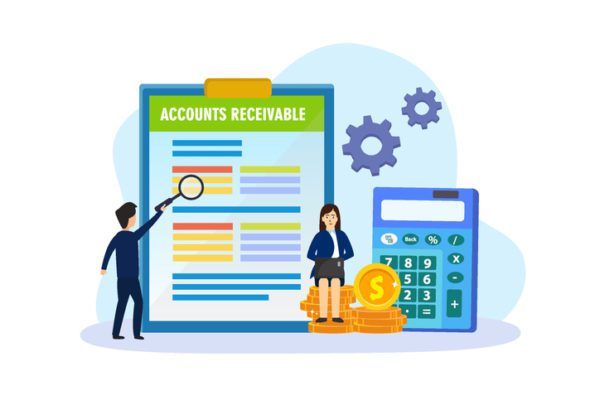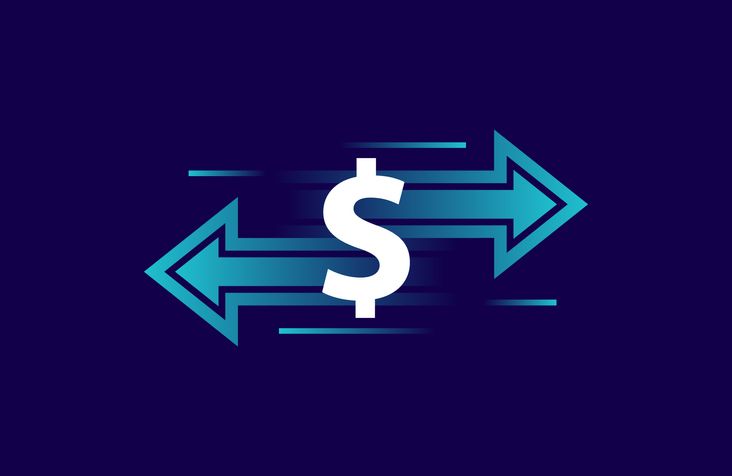Take these steps to minimize your exposure
Bad debts rarely occur overnight. There are usually warning signs that an accounts receivable customer is experiencing financial difficulties. If you can spot the signs of a customer struggling to pay their invoices, you can take steps to minimize your exposure. Here are eleven signs that a customer may be about to saddle you with bad debt.
1. Change in Payment Patterns
A sudden change in payment pattern could indicate that the customer has a cash flow problem. A one-off late payment could be an oversight or a temporary issue. But, if a previously reliable customer’s account is overdue for several months running, this would be a concern. It is not only late payment that is a warning sign. Splitting the settlement of the account into two or more payments could also be a sign of cash flow issues.
2. Order Volume Reducing
A business in trouble will likely cut costs. Consequently, one of the first warning signs a customer is experiencing financial challenges could be a reduction in order volume. However, there could be other reasons a customer is ordering less from you. For example, the customer may have found an alternative supplier or be unhappy with your product or service. So, in this scenario, the first step would be to make an account management call rather than a collections call. Still, it would be advisable to keep an eye on an account when order volume is reducing.
3. Payment Immediately Before Ordering
Struggling businesses will want to continue trading. However, they may be experiencing problems obtaining raw materials and other supplies because accounts are being put on hold. A customer that appears to be paying old debt right before placing a new order could be doing whatever it takes to keep the business afloat. The danger with this situation is that the next order you fulfil could be the last, and the account is left unpaid.
Related: 10 Tips to Avoid Bad Debts for Your Business
4. Excuses
There are many excuses a customer can give for late payment. However, when it appears that there is a different excuse every month, that is not a good sign. After all, only so many mishaps can occur with one customer. If the customer’s difficulties persist, you may also notice that the excuses are less credible. In other words, they are running out of ways to put off making the payment.
5. Admission of Cash Flow Problems
A customer may be honest about the reason for the late payment. They may say that the company is experiencing a temporary cash flow issue. Short-term cash flow problems can occur; nevertheless, an admission of this type should be a cause for concern. How you deal with a customer that has admitted a cash flow problem will depend on several factors. These factors include past payment history and if any of the other warning signs are apparent. However, if a payment promise is later broken, you can assume that the cash flow issue is not as short-term as the customer claimed.
6. Broken Promises
Businesses with a healthy cash flow can confidently predict when they will be able to settle an account. However, companies in financial difficulty must juggle the available cash, reprioritizing payments almost daily. Consequently, they often must break promises made to creditors and devise a new excuse for non-payment. If your customer fails to pay on a promised date, this is another red flag.
7. Phone Calls Ignored
It will reach the stage where the customer knows that excuses and promises will not be believed. At this stage, the customer’s accounts payable or accounts staff will avoid answering collection calls and letters. If you are getting no response to collection calls to the usual channels, it would be best to escalate the matter immediately.
Related: What to do When a Customer Won’t Pay Their Invoices
8. Employee Turnover
The customer’s employees will know long before you that their employer is in difficulties. And senior management will become aware of the situation before the workers. So, a sign that things are not going well is an exodus of key employees and management. Some employees will leave because they see the writing is on the wall. Other workers may be laid off. Either way, if your contacts seem to be moving on, it could signify that something is not right with your customer.
9. Signs of Downsizing
If you have doubts about the stability of a customer, it would be advisable to do some research to see if there are any signs of downsizing. For example, has the customer closed any branches or offices? Have they slashed prices, repositioned themselves in the market, or reduced their product range? You would expect a successful company to be expanding rather than downsizing. So, a customer drastically cutting back their operations might be on the way out.
10. Falling Credit Rating
There will be a time lag between a business defaulting on payments and a drop in the company’s credit score. Still, a steadily declining credit rating would indicate a declining financial position. So, it is advisable to monitor the credit ratings of customers, especially those with significant AR balances. Some credit bureaus also provide a credit warning service, which can be a valuable tool to help avoid incurring bad debts.
Related: 8 Rules for Managing Your Accounts Receivable
11. Rumors
Rumors are not always true. However, if you hear negative comments about a business from several sources, the stories might contain some truth. So, reaching out to contacts in your sector might help you understand what is happening with a customer. If many vendors have payment issues with a company, it would be best to escalate your AR collection efforts to ensure that your company gets paid first.
The Bottom Line
One of the above occurrences alone does not signal that a customer account is about to become a bad debt. But if several of the above signs are apparent, it would be wise to take steps to minimize your exposure. You could escalate invoice collection procedures faster for doubtful accounts. You might also consider reducing credit limits for customers showing signs of financial problems. In some cases, you might want to suspend business with the customer entirely or ask for cash payment with orders. The crucial point is not to ignore the warning signs.
Your Questions Answered Quickly
Whether your business is thriving and you can’t keep up, or you are waiting on clients to pay, Universal Funding can help your growing company. Call us at 800.405.6035 or complete our rate form today to learn more about invoice factoring and how it can improve your company’s cash flow.
About Universal Funding
Universal Funding is a nationwide invoice factoring solutions leader, supporting growth-focused businesses with scalable factoring solutions. With its invoice factoring, payroll funding, and purchase order financing services, Universal Funding provides clients with the working capital needed to grow and support their businesses without taking on new debt. Ranked as one of the nation’s top invoice factoring companies, Universal Funding provides cash flow financing for businesses all across the United States.




